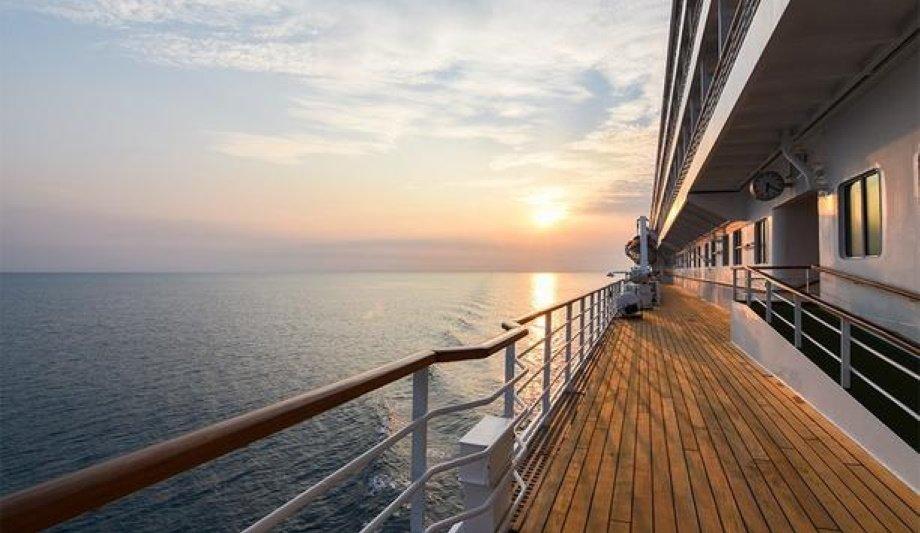The cruise ship industry has cracked the code on keeping passengers and crew safe from the coronavirus (COVID-19) spread, including changes to on-board HVAC systems, to use more outside air and to filter out particles as small as the novel coronavirus.
The industry, which voluntarily suspended worldwide operations at the beginning of the COVID-19 pandemic, under the guidance of international and national health authorities, plans to resume worldwide operations fully later in 2021.
Health protocols to mitigate COVID-19 risk
The cruise ship industry resumed sailing in parts of Europe, Asia and South Pacific in July 2020
The cruise ship industry resumed sailing in parts of Europe, Asia and South Pacific in July 2020 and completed more than 200 sailings by the end of 2020. The success of these early sailings demonstrated the effectiveness of new protocols to mitigate risk of COVID-19 among passengers, crews and at destinations.
The industry will resume operation in the United States, Canada, Mexico, the Caribbean and elsewhere in 2021. Cruise operators, such as Royal Caribbean, have implemented new HVAC systems as part of the protocols.
Royal Caribbean's HVAC system for 100% filtered air
Royal Caribbean says its HVAC system now continuously supplies 100% fresh and filtered air from outdoors to all indoor spaces. There is a total air change up to 12 times an hour in staterooms and about 15 changes per hour in large public spaces.
Fan coil units provide an extra layer of protection in local spaces, such as public venues and staterooms, continuously scrubbing the air of pathogens and using MERV 13 filters to capture aerosols between 1.0 and 3.0 microns with 90% efficacy.
Bio-aerosol assessment study
Royal Caribbean participated in a bio-aerosol assessment of its ‘Oasis of the Seas’ ship by the University of Nebraska Medical Center. The study involved releasing billions of 1-micron aerosol-sized microspheres, each containing a uniquely DNA-barcoded inert virus surrogate, at pre-selected spaces throughout the ship.
The test was intended to determine the efficiency and effectiveness of the vessel’s indoor air management strategies and to understand spread of aerosols through the HVAC system.
Low risk of cross-contamination of air
Testing results led to minimal changes, such as ensuring air exchanges are close to hospital standards and using MERV 13 filters
Over a week aboard the Oasis of the Seas, scientists released billions of the individually tagged microspheres and then tracked where they went and how long they lingered in the air, and on surfaces.
Testing results led to minimal changes, such as ensuring air exchanges are close to hospital standards and using MERV 13 filters. The study confirmed that cross-contamination of air between adjacent public spaces is extremely low and undetectable in most test cases.
Royal Caribbean’s Healthy Sail Center determined seven important elements the cruise line can do to manage indoor air and keep it clean. These elements include:
- Enhanced filtration to the highest level possible
- Optimise airflow patterns
- Use negative pressurisation in isolation rooms
- Minimise unfiltered, re-circulated air
- Increase number of air changes per hour
- Use portable HEPA filters in congregate areas
- Maximise outdoor functions and physical distancing
return to operation of cruise ships
At the start of the COVID-19 pandemic, between March 1 and July 10, 2020, the Centers for Disease Control and Prevention (CDC) discovered nearly 3,000 cases of COVID -19 or suspected COVID-19 infections and 34 deaths across 123 cruise ships. In October 2020, the CDC lifted its no-sail order, laying out guidelines for big-ship cruising to resume operations in U.S. waters.
The Cruise Lines International Association (CIA), which represents 95% of the cruise ship industry, has said its members will return when the time is right and that timing will be based on factors, including input from scientists and medical experts. Cruise companies also have new technologies available to them now. For example, the Italian company, Integra provides an air sanitizer that uses an odorless disinfectant to combat airborne illnesses. It can be installed in 15 minutes.

